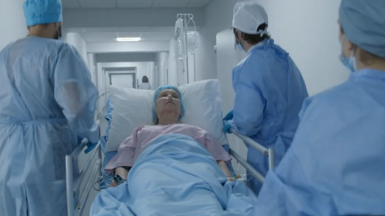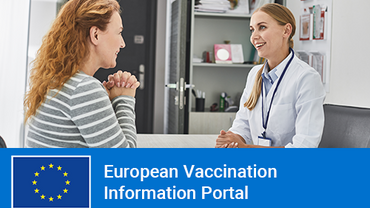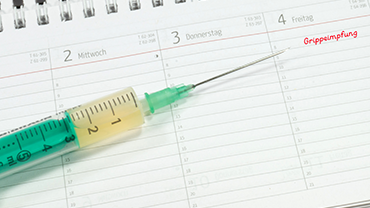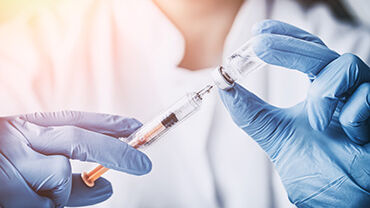Congenital rubella syndrome (CRS)
Congenital rubella is the infection of a foetus with rubella virus following the infection of the mother during pregnancy. ‘Congenital’ indicates that the foetus also becomes infected during pregnancy.
Congenital rubella is a rare disease in the EU but cases of Congenital Rubella Syndrome are still reported every year according to reports from WHO.
Rubella is a mild febrile rash illness. Up to 50% of infections may not present symptoms. However, as many as 85 out of 100 babies born to mothers who had rubella shortly before or during the first three months of pregnancy may develop health problems, so-called congenital rubella syndrome.
Rubella infection of the foetus may have severe consequences on the development of baby’s organs, which may result in birth defects or problems at a later stage in life.The type of complications may vary in nature and severity, depending on the stage of pregnancy when the infection occurred.
Complications affect 85 out of 100 babies whose mothers had rubella just before or at the beginning of the pregnancy.
Complications include:
- deafness
- cataracts
- heart defects
- brain disorders
- mental retardation
- bone alterations
- liver and spleen damage.
Furthermore, an infant infected with rubella during pregnancy can continue to shed the virus for about a year, sometimes longer. Symptoms can appear in the infant immediately at birth and up to the age of four years.
Sometimes, even after a while, more issues might come up, like diabetes, problems with the thyroid, or troubles with their vision or how their brain works.
In approximately 20% of the cases, rubella infections result in the death of the foetus.
Rubella is transmitted from person to person via droplets (the virus is present in throat secretions). It can affect anyone who is not protected.
If infection in an unprotected person occurs during pregnancy, placental infection occurs and may lead to transplacental foetal infection.
There is a vaccine against rubella which is included in the vaccine schedules of all EU member states (see the ECDC Vaccine Sheduler).
Women who are planning to get pregnant should be vaccinated if not vaccinated or uncertain about their vaccination history as this protects the mother as well as the foetus. Women should avoid getting pregnant during four weeks following vaccination.
The best way to prevent rubella is through vaccination.







